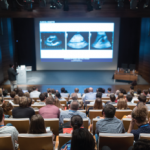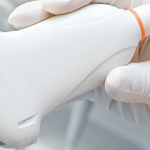For the past three years, I have had the honor of serving on the ACR Board of Directors. Based on that experience, I feel qualified to provide members some insight into the work that our professional organization does on our behalf. The summaries of the board’s activities that are publicly released do not convey the whole story, or the nuances of the board’s work.
Three years ago, I authored an article for The Rheumatologist on my impressions of my first board of directors meeting (“Hard Work Behind the Scenes,” May 2009). Now, I wish to extend that effort. This article will chronicle this rheumatologist’s interpretation of the activities of the board over the past three years. It will not, by any means, catalogue all of the activities or mention all of the contributions made by literally hundreds of individuals involved in the board’s work. Rather, it will highlight a few issues that are likely on the minds of ACR members.
People Are Key
First, some background on the ACR as an organization. The board is the governing body of the ACR and it supervises, controls, and directs the business and affairs of the ACR, its committees, publications, purposes, and funds. The board leads the charge and the committees implement the work. The vast majority of the work is actually performed at the committee and subcommittee levels by the volunteer members and staff, who get their mandates and funding from the board. The organization is very structure oriented. This has advantages and disadvantages. One advantage is that all projects and activities have a home in at least one committee, with the exception of task forces, most of which report directly to the board of directors. The committees take ownership of the project, which facilitates the project’s successful completion. The committee decision-making model of a highly structured organization like the ACR is both an advantage and a disadvantage. The advantage is that decisions are normally made by consensus. Ideas initiated by a small group (e.g., a subcommittee) are improved upon when discussed in the larger group (e.g., the full committee) and finally approved by the board. The disadvantage is that consensus building among rheumatologists can be time consuming (the term “herding cats” is often used). The ACR has never been described as “nimble,” but on the whole, the process works. It has been this consensus-building interaction with colleagues from diverse backgrounds, whom I otherwise might never have met, that has been the most rewarding aspect of my ACR volunteer experience.


